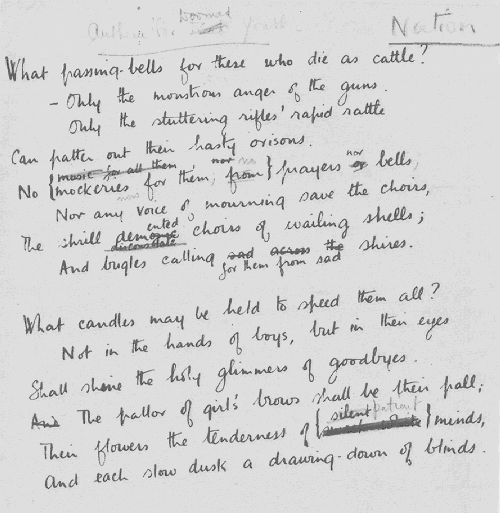

In the War Requiem, Britten combined the text of the Latin Missa pro defunctis with the poems of Wilfred Owen acting as commentary. "Wilfred Owen's poems can be regarded in the mediecal sense as tropes to the liturgical movements, their choice and positioning being an essential element of the compositional process." -Palmer
Some literary critics considered Britten's choice of poems to be questionable. Dominic Hubbard stated that "the poems appear to have been selected without regard to their being late or early, complete or fragmentary, major or minor; sometimes a piece seems to have been included for the sake of its references to music and in some cases the setting does not, in my opinion, reflect the meaning of Owen's words." Hubbard was evidently not familiar with the music and the profound relevance that Britten's selections had to the Latin text and the purpose of the War Requiem. It would not have made sense to choose the most famous of Owen's poems for this work -- in fact several poems, such as the Anthem for Doomed Youth, owe much of their fame to Britten's setting of them.
For a good biography of Wilfred Owen, try Stallworthy, mentioned in the Bibliography page.